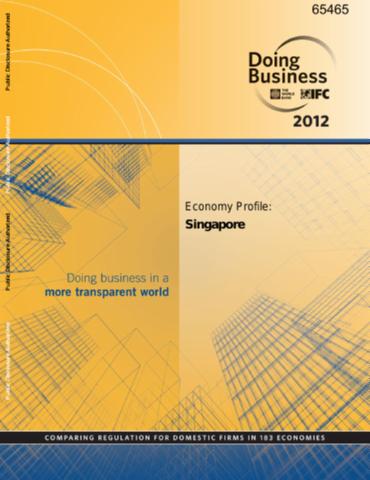This report evaluates the progress achieved in forest management by indigenous people and local communities, which was set as a key objective at the 1992 Earth Summit held in Rio de Janeiro, Brazil. It presents new findings and identifies what needs to done to protect global forest areas and…
The Asia-Pacific Regional Human Development Report (APHDR) focuses on the need for the region to find ways to continue to grow economically, while reducing poverty and tackling climate change and environmental concerns. The report addresses climate challenges facing small island developing…
This document details Vietnam’s progress in relation to Reduced Emissions from Deforestation and Forest Degradation (REDD+) Readiness; it was submitted to the Forest Carbon Partnership Facility (FCPF), a World Bank programme that aims to assist developing countries with REDD+, during March 2012…
Doing business sheds light on how easy or difficult it is for a local entrepreneur to open and run a small to medium-size business when complying with relevant regulations. It measures and tracks changes in regulations affecting 10 areas in the life cycle of a business: starting a business,…
Doing business sheds light on how easy or difficult it is for a local entrepreneur to open and run a small to medium-size business when complying with relevant regulations. It measures and tracks changes in regulations affecting 10 areas in the life cycle of a business: starting a business,…
Background Pastoralists have long inhabited vast areas of western China, including the Tibetan Plateau region. Their traditional land use practices and cultural conservation ethic have helped to protect the natural resource base upon which they depend and the wildlife that co-exist with them in…
This comparative study highlights that rainfall variability and food insecurity are key drivers for human mobility. The empirical research is based on eight country case studies, including a 1,300 household survey and participatory research sessions involving 2,000 individuals. The results…
This handbook summarises the guiding principles, tools and practice in key economic sectors that can facilitate the implementation of resilience concepts into decisions related to infrastructure investments and general urban management as a means of reducing disaster and climate risks. It is…
This brief discusses Reducing Emissions from Deforestation and Forest Degradation (REDD+) safeguards in the context of Vietnam and makes recommendations for future action. It begins by outlining the Vietnamese context and the United Nations Framework Convention on Climate Change (UNFCCC) defined…
This policy-brief examines a two year moratorium on new permits for primary natural forest and peat land that came into force in Indonesia on May 20th 2011. The brief aims to inform a range of decision-making actors in developing countries about the nature of improved forestry management in the…
The Global Environment Facility (GEF) and the UN Development Programme (UNDP) have published this annual report on joint projects financed during 2011 on ecosystems and biodiversity preservation, green development strategies, and sustainable use of water and ocean resources, among other topics.…
The adaptation of land-use patterns is an essential aspect of minimising the impact of climate change at regional and local scales; for example, adapting watershed land-use patterns to mitigate the impact of climate change on a region’s hydrology. The aim of this study is to simulate and assess…


